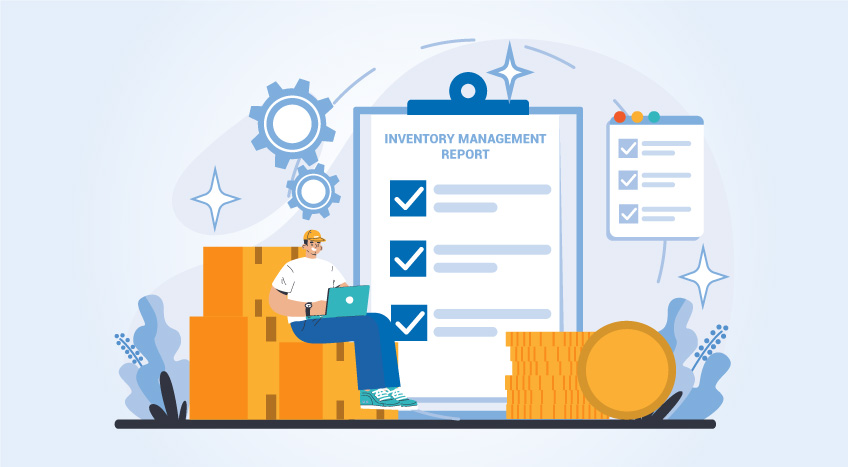- A robust business plan
- Hiring the right people
- Getting a business management software
- Ensuring seamless cash flow to fuel business growth
- Networking
Establishing a business requires dedication, planning, and effort. The initial step is to conjure a stellar idea for your business. Then the next steps include creating a business plan, hiring the right employees, purchasing business management software, thinking through the cash flow aspect, and networking.
|
What Is Cash Management, And How Can It Benefit My Business? |
A Complete Business Management Software for Your Business In USA |
A robust business plan
Starting up a business begins with a business plan which is essentially a detailed document that enables you to answer some tough questions about your venture and share your vision with potential investors and partners.
Executive summary
The executive summary should pique the interest of your potential investors and partners as you pitch your idea the most coherently and realistically possible. The summary contains the basic details of your business, such as the business name, the products or services you will sell, and the current market scenario. It is best to review, edit, and polish it before you present it to the interested parties.
Business description
This drills down the business details you provided earlier. It contains the registered business name, the location of your business premises, and the employees who form the backbone of the company. It should contain the details of the business structure such as an LLC, corporation, sole proprietorship, or partnership. The stake of the company is also outlined here.
Business goals
You must define two types of goals: intangible goals and tangible goals. Intangible goals are difficult to measure, but they show you whether your business is on the right path. For example, the number of excellent reviews you receive or genuine interest in your brand comes in this category. Tangible goals are measurable, and they include social media engagement rates, the number of email subscribers, social media followers, and so on. You must have revenue goals too.
Products/services description
This section explains what you are offering (in terms of products or services) and how you are solving an existing problem. It shows how you are bridging the gap with the current market in mind. The materials required to manufacture the finished product must be specified here. Don’t forget the pricing strategies you are planning to use for selling those products or services. If you have trademarks, include the details of those in this section.
Market analysis
Here you have to explain how you stand out from the crowd and why you are confident about succeeding in your venture. You need to go into detail about why you will surpass your competitors and the edge you have over them. You must include details such as the analysis of the target market and the size, various existing segments, trends, and growth rate. You must include an evaluation of the key competitors too.
Financial plan
Questions about your budget and your expenditure plan must be outlined here. How you plan on monthly and yearly spending, along with the costs, are to be detailed in this section of your business plan. You need to account for the business operation costs such as rent, furniture, machinery, and software. The marketing, sales, and other costs, including details of plans on emergency funds due to potential natural disasters, must also be elucidated in this section.
Hiring the right people
Hiring the right people for the job is crucial when starting up a business.
Recruitment process
Hiring the best person for the job starts with a good recruitment process. You must have a flexible timeline, an assessment criterion based on which the candidates will be evaluated, and a process of cross-checking references. The job descriptions and expectations must be laid out so only the applicable candidates apply for the job.
Choose between in-house and outsourcing
You need to choose between whether you opt for in-house recruitment or outsourcing or a mix of both. In-house recruitment allows you to select your candidates with care, set up an office and use in-house resources, and work in the same office. Outsourcing can be cheaper, but the quality is not guaranteed, and the location of your employees will be elsewhere. Think about your requirements, associated costs, and goals before choosing the suitable option for your business.
Finding the best employees
Hiring the best requires you to put forth a strategy by starting to define the job first. This will narrow the candidates followed by a pre-screening process which will filter out even more people. You want to test their knowledge in their domain by interviewing them with specific job-related questions to see how open their mind is and how well they apply the knowledge. You want to also look for body language cues during interviews to find the best of the best.
Company culture
Building a company culture starts with outlining what your company stands for and thinking about creating an inclusive learning environment for every employee. Providing valuable initiatives to the employees will help them feel appreciated, thereby improving productivity. The company culture should not be something that is spoken about. It should be documented, enforced, and part of your business objectives.
Compliance with employment laws
You must understand and comply with employment laws, including legal, pension, and tax laws, when hiring people. Even if your employees are unaware of such laws, you must know all these laws and adhere to them at all times. For example, the Fair Labor Standards Act, Occupational Safety and Health Act, Employee Retirement Income Security Act regulation, and so on.
Getting a business management software
Business management software is crucial to streamline your accounting, managing various business aspects, and generating insightful reports to understand your business specifics in detail.
Benefits of a business management software
A business management solution provides a centralized data storage facility making data retrieval a swift and easy process. It improves employee productivity as it automates mundane tasks, comes equipped with reminders, and generates reports for making informed decisions. It cuts down costs as many processes are automatic, minimizes errors, and require no human intervention. It promotes transparency and compliance, along with improving collaboration.
How to select a business management software
You can select a business management software by brainstorming your business requirements to understand what you need now and how the requirements will change in the future. You need to think of the features that are most valuable to you and any additional features you may need as your business scales. What type of support is provided is also a crucial factor as it ensures the onboarding process is effortless and comfortable.
You need to think of the total cost of ownership and the extra costs associated with the business software. The implementation process should be thought out and the technology behind the software. You should select software that is easily scalable because your business will grow eventually, and the software should grow with it. Security is mandatory when you have a team, and the software should provide user access control to you to limit access to sensitive business data.
TallyPrime business management software
TallyPrime is an ERP made for MSMEs, making it the perfect fit for every new business. It comes with an in-built inventory management software, payroll processing system, and invoicing system. Each allows you to manage inventory, process employee payments, and generate professional invoices respectively. TallyPrime’s reporting feature enables you to generate more than 400 reports with utmost detail and clarity.
TallyPrime aids in cashflow projection to better invest and spend money. It has a business forecasting feature that allows you to generate reports based on scenarios for better business planning. The software enables you to manage more than one branch with remote access. You can set a budget and check how far or close you were to your projection. You can also control user-level access to the software so your employees only have access granted by you.
Ensuring seamless cash flow to fuel business growth
Starting up a business is also about how well you manage your cash. You don’t need to be an accountant to manage your cash flow, although accounting software like TallyPrime will certainly help manage your finances with ease.
Open a bank account
It is advisable to keep your bank account separate from your business account for the sake of clarity. A business bank account will be helpful when you need to secure a business loan to improve your business or add resources for better profits. All business-related transactions should take place using this bank account. This makes it easier when you need to reconcile your bank statements with your book of accounts.
Accounting software
If you have accounting expertise, good for you. But even so, you need to either hire an accountant or install accounting software or both. At the start, you may feel like an accounting solution is not required due to limited transactions. But as your business grows, so will the transactions and the complexities associated with running a bigger business. To streamline all transactions, it is best to spend on a business management software solution such as TallyPrime, which has an accounting module.
Networking
When you are starting up a business, networking is an aspect that gets side-lined more than others. Networking is the art of building meaningful relationships with people and other businesses who help your business grow. Networking might sound challenging, but its benefits are manifold and will aid you in the years to come.
Benefits of networking
Networking unveils a brand-new set of opportunities when you are starting. It enables you to identify trends and learn about the industry from experts. Networking enables you to build your brand and makes you stand out from your competitors. It helps you get the right people for your business and gives you the power to influence others in your industry. It also helps you get closer to your target audience, thereby improving your prospects of doing better business. Networking is the foundation of doing good business and starting on the right foot.
How to network?
Networking is an ongoing process, and you will come across people from your industry with whom you want to partner in the future. You can network by attending social media group events. You can go in person to industry events to gain knowledge about your industry and learn about the trends. You can attend conferences and meetings in person. Another way to network and grow your presence is to partner with online influencers who can help get the word about your business out there.
Networking relies on how you tell your story because only interested people will remain in touch with you long after the seminar or event, or meeting is over. You have first to make a connection and show interest in what the other person offers. You can ask them specific questions and even ask for their advice. But don’t stop there because you need to be reciprocal and offer your knowledge in return. It cannot be a one-sided relationship, as that won’t last.
Read More:
- Ways To Increase Your Cash Flow
- Factors to Consider before Buying Bookkeeping Software for Your Business in USA
Explore More Products










